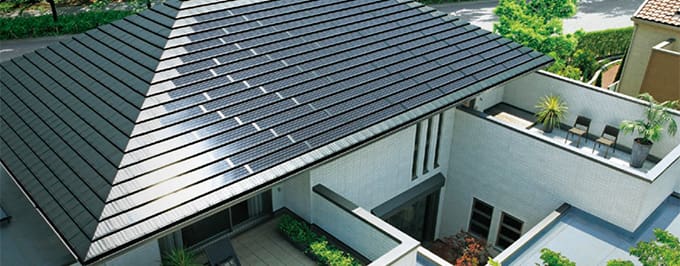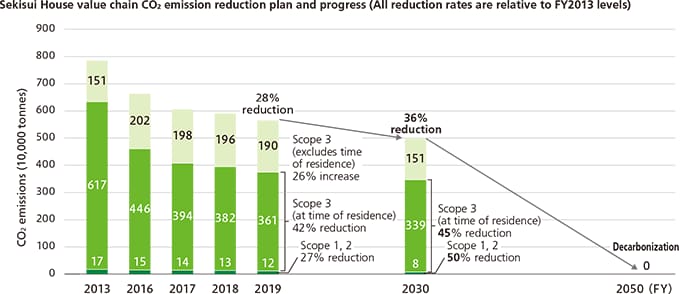
Decarbonized Society
Basic concept
Net-zero energy houses and net-zero energy buildings aim to achieve an annual balance of primary energy of plus or minus zero while providing a comfortable indoor environment by generating power and focusing on energy efficiency.
Approach
We were quick to introduce ZEH Green First ZERO products for new detached houses placed on the market. We are leading the ZEH transition in the housing industry by constructing Japan's first ZEH rental units and condominiums. We also launched Sekisui House Owner Denki, which aims to achieve RE100*1 by purchasing surplus electricity from post-FIT*2 homeowners. Having obtained SBT certification*3, we are implementing decarbonization efforts.
An initiative to obtain sufficient renewable energy to offset all the electricity consumed by a business
A reference to the expiration of 10-year (or 20-year) contracts for purchase of renewable power by an electric power company under a feed-in tariff (FIT) framework
Certification of greenhouse gas reduction plans based on scientific data


Sustainability Report 2020 TOP
Contributing to Health, Longevity and Wealth
Pursuing Customer Satisfaction through Our Value Chain TOP
Action policies ② Meticulous supply chain management for material procurement
Action policies ③ Enhancing production and distribution quality and improving operational efficiency
Action policies ④ Strengthening our workmanship and maximizing our construction capabilities
Basic concept & Action policies | Promoting Diversity
Basic concept & Action policies | Workstyle Reforms
Basic concept & Action policies | Human Resource Development
Independent Third-Party Assurance Report



